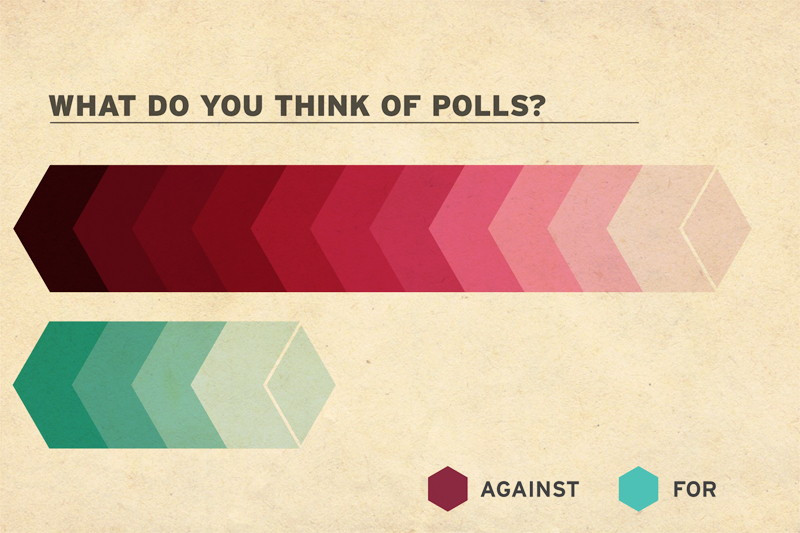The highs and lows of political polls
Limited evidence of negative impact or change in voter intention, say experts
Whether the main mayoral candidates were neck-and-neck or making a one-sided breakthrough, Winnipeg’s civic election was all about the horse race – a race that hinges on the volatile highs and lows of political polling.
Public opinion polls, which have become a contentious staple in modern election coverage, are surveys that take a random sample of voters and expand it, reflecting the voter intention of the general population.
Some feel that these polls disproportionately benefit the front-runners and distract from the issues of a campaign. Others find them to be an informative measure of public opinion that can change politics for the better.
“I think they (polls) really help us understand what the electorate is thinking,” said Scott MacKay, president of Probe Research Inc., an organization that specializes in public opinion research.
“I think the media ... know that if they have an exclusive public opinion poll it’s going to help them with their core business.”
Polls have become widely used by the media and others to judge voter intention – so much so that some fringe candidates feel slighted by the process.
“If you’re not getting any press, polls can really affect (your support),” said Brad Gross, a real estate developer who ran for mayor in last month’s municipal election.
Gross received just over 3,000 votes.
Throughout the campaign, coverage of opinion polls about incumbent mayor Sam Katz and challenger Judy Wasylycia-Leis dominated the media to his detriment, he said.
“I thought society was more democratic,” he added, explaining that all candidates should get equal media coverage and that he vehemently distrusts the polling process.
“(They’re never) 100 per cent accurate – there’s always a disclaimer on it (the poll). That makes it an opinion.”
Gross conducted two of his own grassroots polls during the campaign, commissioning a Second Cup franchisee and a dentist to survey their patients and customers.
“If it’s just an opinion, why can’t I run a poll?” he asked.
Both surveys had Gross in a significant lead over Sam Katz and Judy Wasylycia-Leis. As a result, he pitched a story to the Winnipeg Free Press based on his survey data, he said.
Bartley Kives, city reporter for the Free Press, said that he does not recall an email or a story pitch from Gross.
“ As long as you collect a reasonably large and randomly selected sample, it can certainly be ... (an) accurate (poll).
Mike Halldorson, Psychology and Statistics Instructor, University of Winnipeg
Mike Halldorson, a psychology professor and statistics instructor at the University of Winnipeg, believes that statistical concerns like those voiced by Gross carry little or no factual weight.
Polls can never be 100 per cent accurate, he said. However, they are based on a solid statistical formula, and the variables are often clearly presented to the reader.
“There are always going to be some limitations,” he said. “Pollsters in general ... give you enough information to be able to evaluate (the accuracy of) what they’ve done.”
For example, if a candidate has 65 per cent of the popular vote with a margin of error sitting at three per cent, that candidate actually has the support of between 62 and 68 per cent of the population, Halldorson said.
“As long as you collect a reasonably large and randomly selected sample, it can certainly be ... (an) accurate (poll),” he said.
Scott Matthews is a political science professor and an expert in voting and public opinion at Queen’s University in Ontario.
“There’s not a great deal of evidence that polls have a negative influence” on political decision-making or understanding, he said, adding that he has actually detected a positive correlation between attention to poll data and knowledge of the central issues of a political campaign.
“It’s well established that media attention correlates to campaign knowledge.”
Published in Volume 65, Number 11 of The Uniter (November 11, 2010)







